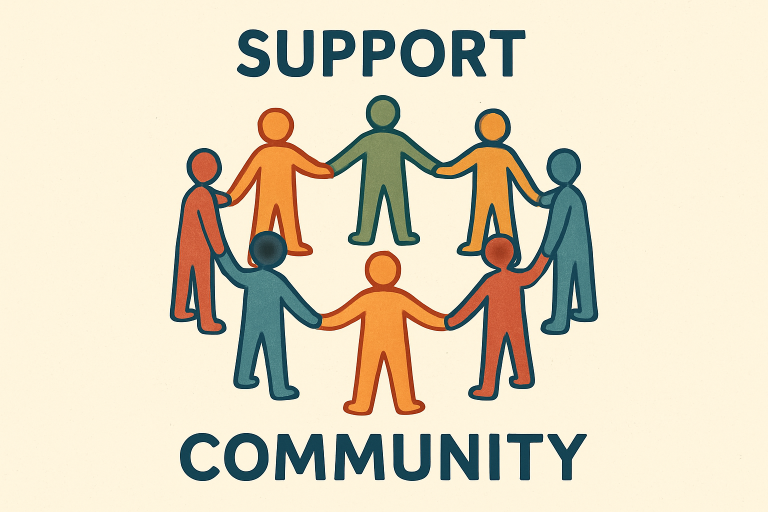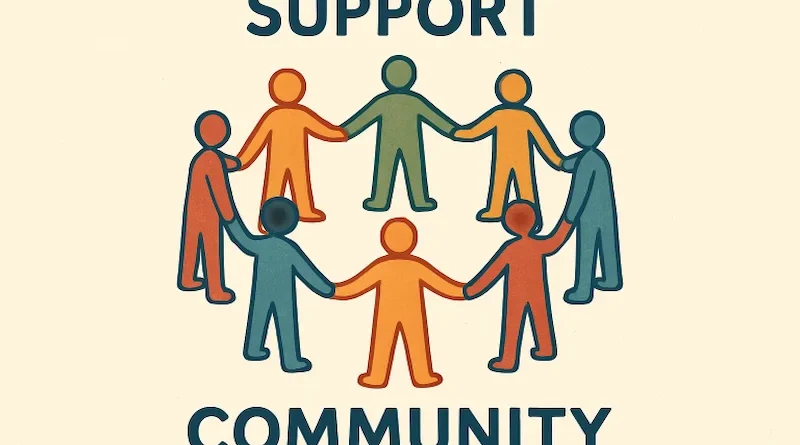How Behavioral Support Networks Can Empower Lasting Wellness
Building a robust behavioral support network is fundamental for sustaining lasting wellness. These networks can provide vital emotional encouragement, practical aid, and a sense of connection, all of which help individuals navigate stressors and cultivate ongoing resilience. Connecting with a mental health companion service ensures tailored support, helping individuals address complex needs while building meaningful relationships.
Support networks extend far beyond casual friendships—they are often formed through deliberate involvement in peer groups, strategic engagement with community resources, and professional guidance. For many, incorporating a mental health companion service into their care plan offers a structured yet compassionate approach to wellness, especially for those facing ongoing behavioral health challenges.
The Role of Behavioral Support Networks in Wellness
Behavioral support networks involve friends, family, healthcare professionals, and peers who collectively function as a crucial safety net. These interconnected relationships offer more than just emotional reassurance: they are fundamental in providing practical guidance, enhancing problem-solving abilities, and encouraging healthy coping behaviors. Years of research have established that people with strong social and behavioral support exhibit improved mental health, reduced anxiety, and better health outcomes overall. As highlighted by the American Psychological Association, social support is associated with a lower risk of mental and physical health decline over time. These support networks not only help individuals navigate daily challenges but also foster resilience during times of crisis. Cultivating and maintaining these connections is essential for long-term well-being and recovery.
Community Programs: Building Resilience and Reducing Stigma
Community initiatives continue to be a powerful way to address both individual and societal wellness barriers. Programs such as peer-led groups, wellness workshops, and public campaigns on mental health literacy cater to people from diverse backgrounds. By fostering environments where it is safe to share experiences and learn new skills, these programs resist the isolation that so often accompanies mental health struggles. They also actively challenge the stigma associated with seeking help, making it easier for individuals to reach out and benefit from available resources.
One of the transformative aspects of community programming is its emphasis on inclusivity and shared experience. These efforts not only provide direct support but also empower participants by normalizing conversations about mental wellness, encouraging collective problem-solving, and uplifting personal stories. This collective approach is evidenced by organizations like the National Alliance on Mental Illness (NAMI), which provides extensive peer-led educational resources and support networks across communities.

Integrating Behavioral Health into Primary Care
Holistic wellness requires that both physical and behavioral health be addressed together. Integrating behavioral health into primary care settings creates a seamless experience, making it easier to catch early warning signs and implement timely interventions. Healthcare teams can develop personalized care plans that address the complex interplay between physical symptoms and mental health concerns. As highlighted by Behavioral Health News, this integration not only enhances patient outcomes but also promotes a more compassionate and patient-centered healthcare system.
Leveraging Technology for Support
The digital age presents new opportunities for support that extend beyond traditional face-to-face networks. Innovative online platforms now allow young adults and others managing mental health and substance use challenges to connect virtually with peers, mentors, and professionals. These secure, HIPAA-compliant spaces offer a continuous source of encouragement, expert advice, and group discussions. By leveraging such platforms, clients not only gain practical guidance but also benefit from around-the-clock community support—an essential lifeline for those who may feel isolated in their day-to-day lives.
Peer health coaches and community managers often moderate these forums, ensuring helpful, evidence-based resources are always available. Emerging research from reputable sources reveals that regular engagement in online support communities can lead to greater self-awareness, increased confidence in managing mental health, and a reduction in harmful behaviors.
Practical Steps to Build Your Support Network
Strengthening your behavioral support network requires intention and ongoing effort. Begin by identifying your unique needs—consider whether you are looking for practical, emotional, or informational support. Once clear, seek out relevant community resources, such as local workshops, support groups, or wellness events, which can offer valuable connections. Maintaining healthy relationships with family, friends, and trusted peers is equally crucial, as they are often your primary sources of day-to-day support. When facing specific mental health challenges, do not hesitate to consult a professional, such as a therapist or counselor. And finally, embrace the opportunities provided by technology—whether through online forums or mental health platforms, digital spaces can supplement in-person connections and extend your reach.
- Identify Your Needs: Reflect on the specific kind of support you would benefit from most.
- Engage with Community Resources: Attend local mental health workshops, groups, or events.
- Foster Relationships: Cultivate supportive connections with people you trust.
- Seek Professional Help: Work with therapists or counselors when professional input is required.
- Utilize Technology: Join online communities tailored to your wellness journey for additional support.
Conclusion
Cultivating and sustaining effective behavioral support networks is indispensable for achieving and sustaining true, lasting wellness. Community-based programs, integrated care, and innovative digital platforms each offer unique advantages in building resilient, empowered support ecosystems. By proactively building support systems—whether through a mental health companion service, active civic engagement, or technology-enabled connections—individuals and families alike can thrive, regardless of the challenges they face.
Visit the rest of the site for more interesting and useful articles.

